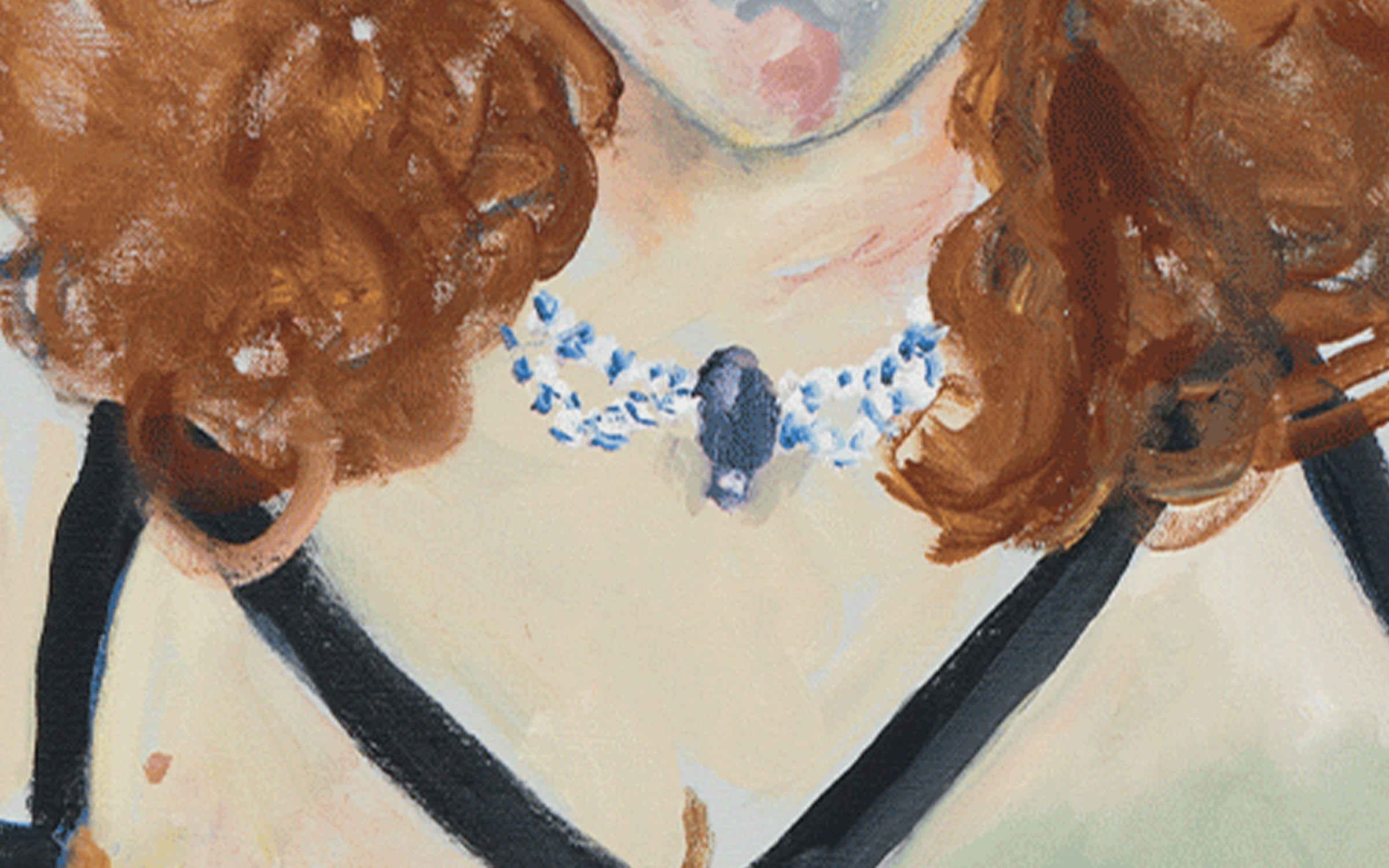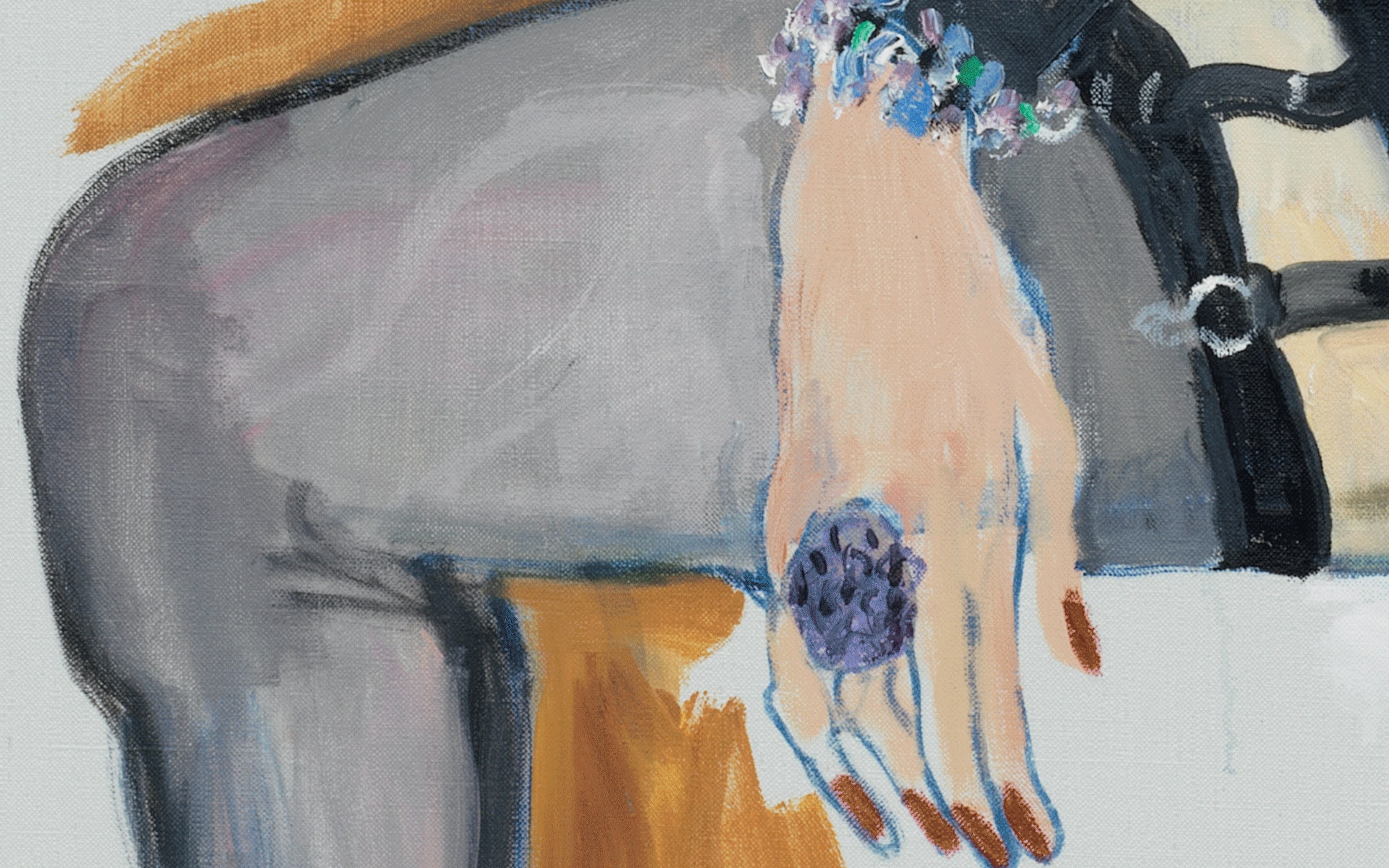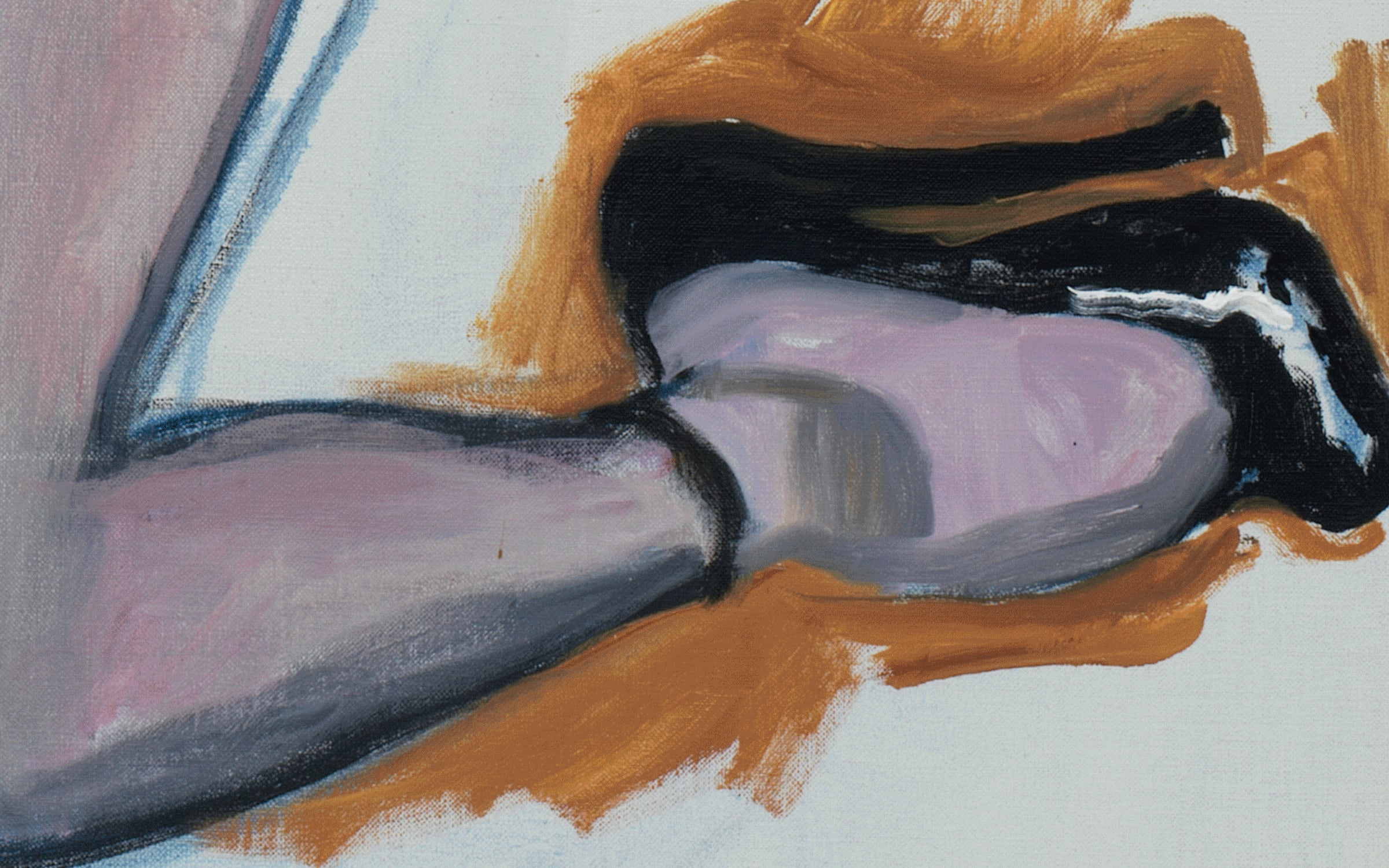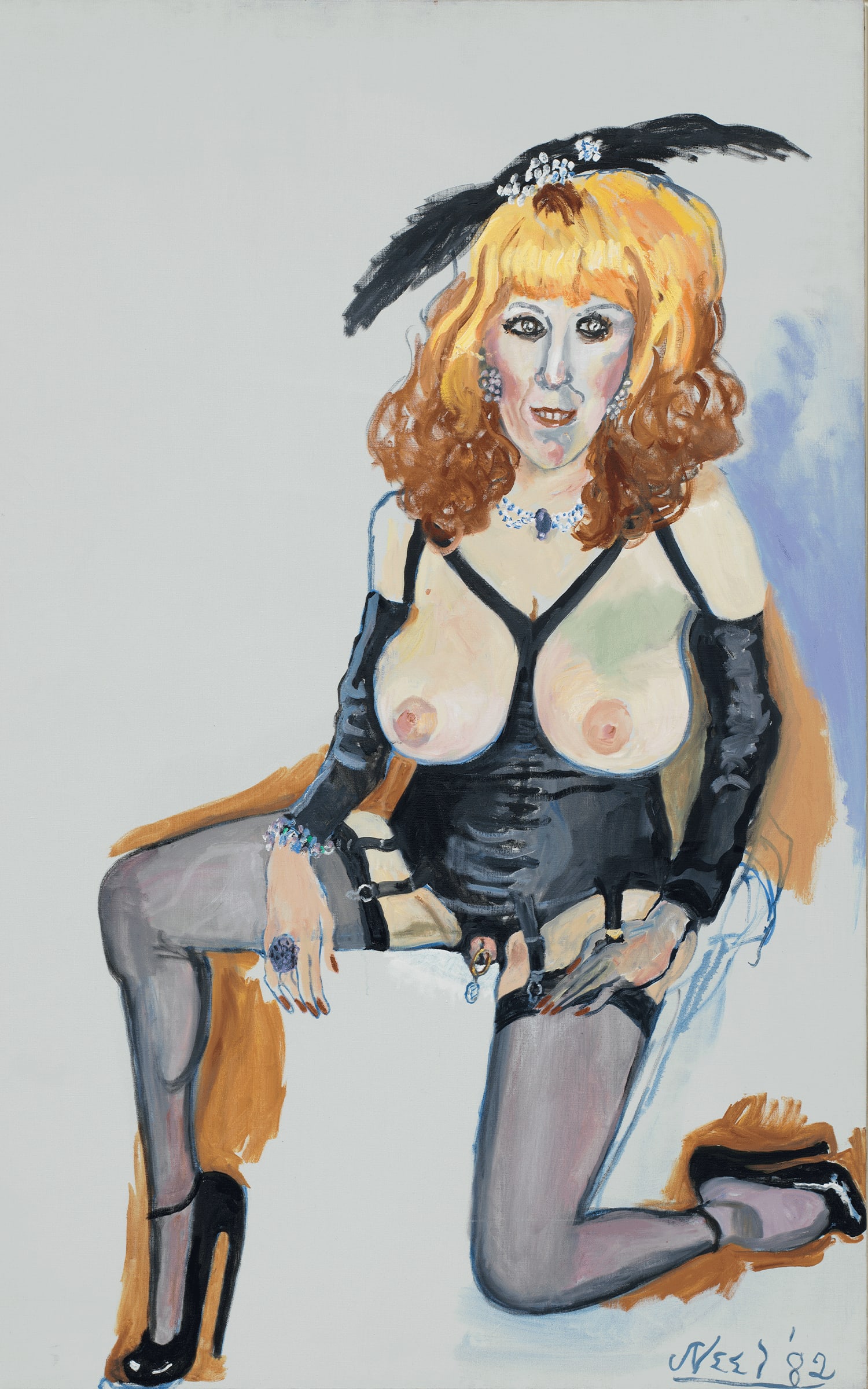Alice Neel shows us a woman positioning herself with aplomb: It is Annie Sprinkle, an American artist and militant porno-feminist who has also been one of the most important voices in the popularization of sex education, promoting a joyful, unabashed sexuality.
The representation of a nude woman in a painting free of the male gaze is particularly remarkable. Indeed, centuries of male domination have conditioned us to look at the presentation of women’s bodies through a patriarchal lens, as though these images could only be the potential receptacle for an eroticizing gaze – bodies conceived solely as being in service to masculine desire.
In Neel’s painting from 1982, however, I see precisely the opposite: a woman proudly bearing all of the attributes associated with feminine indignity. She is proud as she displays her body, carrying herself with the kind of attitude that people read as arrogant in women (while a similar bearing in men is praised). Without a hint of shame, her posture attests moreover to a certain expertise. Sprinkle is a master of how her own image is coded – she is not simply a woman who embodies sexuality, she is a sex professional.

While the perception of pornography has evolved, it has long been treated with contempt. So, we can appreciate Neel’s decision to portray a woman whose career was built on the genre, and to show her in full control. It is singularly revolutionary. Neel proposes her own interpretation of Sprinkle’s work, which strives to deconstruct the role of ‘sexual object’ that fences in women in the sex industry.
Sprinkle is not presented in an overstated, caricatural aesthetic, as a body shown in dehumanized pieces to excite spectators. Nor is she a passive, naive actress who has fallen into the hell of the pornography industry for lack of better options. No. It is not a question here of depicting a victim or a form of passivity – her posture is voluntary and the light raw. Her genitals are not hidden, nor hinted at through a subtle play of light and shadow, but rather there, quite plain to see. The choice of pose, suggesting relaxation or rest perhaps, also offers distance from those portraits we imagine to be constrained by notions of beauty, or at least of a certain conception of beauty.

Thus, this painting leads us to discover the features of a magnificent and infinitely powerful woman, and as such, it breaks with traditional Western canons. The protagonist’s poise seems to defy whomsoever might attempt to pass judgment on her activity. She knows what she is doing. She is the knower – she who knows her body and her sexuality.
There is an opportunity for all women here – indeed for all people whose gender or sexuality is devalued – to firmly take possession of their space and to anchor their indisputable knowledge within it.


Rokhaya Diallo is an award-winning journalist, author, and director based in Paris.
The Estate of Alice Neel is represented by Xavier Hufkens (Brussels); Victoria Miro (London, Venice); Aurel Scheibler (Berlin); and David Zwirner (New York, Hong Kong, London, Paris).
‘Alice Neel : Un regard engagé’
October 5, 2022 – January 16, 2023
Centre Pompidou, Paris
English translation: Jacob Bromberg